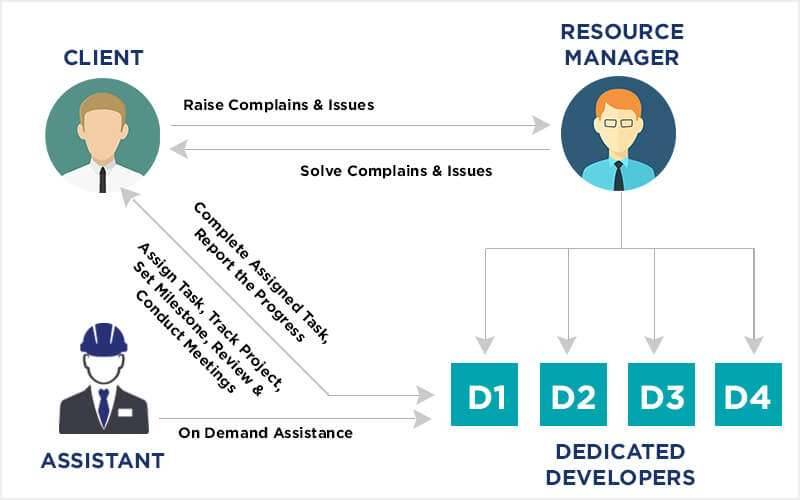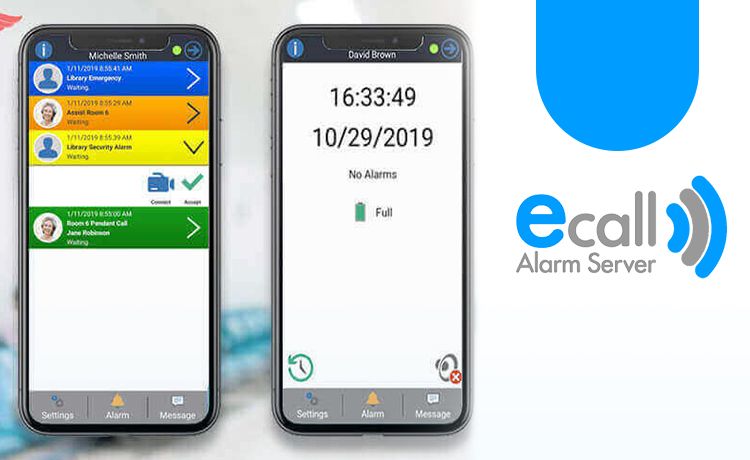This topic sounds interesting but prolonged. So what I came up with is skimmed key points to decide whom should you hire as an entrepreneur.
There are various ways of doing projects in IT company some prefer outsourcing, some in-house or some may be want to hire developing team. It is entirely depends on the project type, size, duration, cost of the project and yes off course top management.
Now let's look how hiring development team works?
It is method of hiring remote developers for the completion of the specific projects. They are working remotely but dedicated to the project completely. They may be part of one company but they work for the another company. They will charge on the basis of hourly, weekly or monthly.

How In- House developer works?
In-house developers are those who hired once in the company and working for the said company and for the company's assigned project. They may get trained regularly if required for the completion of the project.
Furthermore let's see what are the advantages of hiring dedicated development team?
1) Cost effectiveness:

Yes it is cost advantage technique. Lots of cost cutting can be possible. Because you have to incur training cost for in-house developers. Moreover you will be paying hourly or daily wages to the developers of the team so it is will be easy for you to handle.
2) Specialized tech skills:
"Industry superiors with lowest cost."

IT is very crucial to learn and regularly updates are also there. Client may demand for latest technology for completion of the project. In-House developer can't get trained in a shorter duration or maybe he is not capable even then you have to go for hiring another one. Rather dedicated development teams are having these skills already you just have to pay them and get the advantages of latest tech skills for the project.
3) No infrastructure.
No hardware and software facilities required to be set up. No need to add work stations for training of in-house developers. Nowadays software tools are expensive. No need to get those for the project.
4) Flexible timings:
You can pre decide mutually the timings of each developer. And accordingly he works for the project. You can also demand flexibility as per urgency of work.
5) Standardization:
Dedicatedly hired developers are highly standardized in their work. They will use agile methodology of work. They will not follow any time saving techniques.
6) Understand Urgency of the project:
These developers are already having the skills which you want to use. So, they are expert in the techniques and adopt the project requirements soon. They will start working immediately and understand deadlines. They will deliver the work on time and ultimately project completes on time.
While in-house developer cannot understand the urgency of the project. They will learn casually and work casually.
7) Working with freedom:
Developers are highly skilled they would not require timely watch. They want freedom in working. Its irritating if someone keeps watching you working. These developers are self motivated they didn't require eye catch every time. So, by this way they get enough space to work as per their convenience. So productivity would be high.
"Approximately 69% of the employees generate higher productivity when working remotely."
You as a entrepreneur also get spaced to decide on management issues. You just have to assign the work and regularly checking on deadlines.
8) Communication:
Easy and simple way of connecting between you and developers. As various telecom facilities are available now you can contact any of the developer at any time.
This technique is also not lacking from drawbacks. Some of the drawbacks are..
1) Breach the contract any time:

What happens that sometimes hiring dedicated development team from the existing company may broke trust. Some developer may break the bond and directly works for the hiring company as an in-house developer or freelancer.
2) Communication gap:
It may prove as unfavorable. Only oral communication happen between the team and the management. This would probably not enough to know the right stage of the project. Some developers may not work. You cannot know what they are doing entire day.
3) Ask more duration than required:
They may ask for longer duration. While it may be not exactly required for the project.
4) Different Time zones:

Major problems are arising from time zones. As time zones are different everyone want to work at their own time. It may get clashed between team and you.
5) Cross culture:
Problem of cross culture is also there. Different culture having different work styles, wishing, talking patterns. Which might get conflicted. Sometimes collaboration with team member may get grappled. They can't collaborate with each other. Which might cause failure of the project.
These are the pros and cons of the hiring dedicated development teams. By reading this you will have idea of how it works, how it prove beneficial or how it will get failed. Now You can judge this technique is suitable for your project or not?
Now let's see what are the pros and cons of in-house developer:
Pros:
1) Complete control:
You can have complete control on your project and developers. You can get the report of developers what they are doing? Where they have reached? Where they stuck up? You can get entire report and ultimately control on the project. You can also ask for deadlines meat.If they are not attending the deadlines you can ask them to sit and complete the task.
2) Quality of work:
You can ask for qualitative work. You can pre decide the methodology for the company. In-house developers are ready to work in that methodology. So, you will be having standardized project.
3) Guidance:
In-house developers are ready to work as per your guidance. So they will try to follow guidance and instructions carefully. So less chances of errors. And as they are under your watch you can check whether they are following your guidance or not.
4) Rules and regulations:
In-house developer is following all the rules and regulations which are mentioned to them. They will not try to break them because they are well aware that they will be penalized if they do so.
5) Timings:
In-house developers are ready to work for those timings that company has mentioned at the time of hiring. They will be regular about timings. In some of the companies there are rules that 10 minute late employee will be consider on half leave. So these rule also forced them to be on time.
6) Low rates:
In- house developers are agree to work in low rates. They would agree to accept industry standard rates. May they have less tech skills. But gradually training would help to them to develop their skills as well. So, ultimately it would be beneficial for you.
7) Communication:
Easy and simple process of communication. Direct and indirect communication will be possible. There can be also meetings where all the issues can be discussed well. Agenda would be clear in the meetings. So in-house developers have complete idea of work, methods and deadlines.
Cons:
1) Training cost:
In-house developers are not having enough tech skills. They must be trained first. So huge training cost and time required. Moreover after getting training they will not definitely work for the company even though bond is there. So, it will be prove huge unnecessary cost if they leave the company. Furthermore you have to develop training center or hiring tutors which comes with extra costs.
2) Infrastructures:
In-house developers are working in the company so you have to develop basic facilities for them. You have to spend on software and hardware tools.
3) Local boundaries:
In-house developers are most probably local ones. So, they would not have exposure of different work environment and working methods. They may not able think out of the box. IT is something where innovation and updating is crucial part which can't be ignored at all. These developers are not that much creative in thinking and logic.
4) Rigidity:
Most In-house developers are rigid they are not accepting change easily. So, they also takes time to learn the new things. Which is not favorable for IT company.
5) Hiring tenure:
In-house developers can't be hired on adhoc basis. They are hired for the company not for the project. So you have to work with them even after the project. You can't fire them immediately. While dedicated development teams are hired for completion of the project on adhoc basis. Ones the project ends contract completed.
So, these are the pros and cons of both the methods on comparative basis. Some pros of one method may be cons for another. Now you can visualize both the method and select the best method for your project.

































